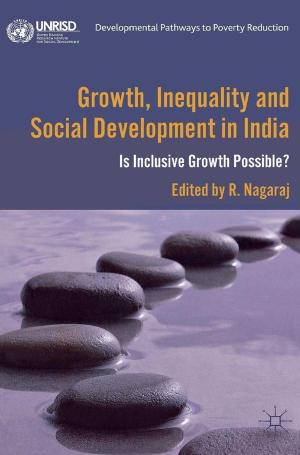Resource Management and Contested Territories in East Asia
Nonfiction, Science & Nature, Science, Earth Sciences, Geography, Social & Cultural Studies, Political Science, Government, Public Policy, International| Author: | R. Emmers | ISBN: | 9781137310149 |
| Publisher: | Palgrave Macmillan UK | Publication: | January 31, 2013 |
| Imprint: | Palgrave Pivot | Language: | English |
| Author: | R. Emmers |
| ISBN: | 9781137310149 |
| Publisher: | Palgrave Macmillan UK |
| Publication: | January 31, 2013 |
| Imprint: | Palgrave Pivot |
| Language: | English |
Ralf Emmers discusses the significance of natural resources as a source of inter-state cooperation and competition in East Asia, assessing whether the joint exploration and development of resources can act as a means to reduce tensions in contested territories. Does the joint management of natural resources in the absence of a negotiated maritime delimitation constitute a feasible strategy to de-escalate maritime sovereignty disputes in East Asia? Can cooperative resource exploitation be separated from nationalist considerations and power politics calculations? Alternatively, should the prospect for joint exploration in disputed waters be expected to raise rather than defuse territorial conflicts, especially if abundant resources are eventually discovered? If this were true, should exploration schemes be postponed until sovereignty disputes have been resolved? Emmers addresses these questions by examining the overlapping sovereignty claims in the Sea of Japan and the East and South China Seas.
Ralf Emmers discusses the significance of natural resources as a source of inter-state cooperation and competition in East Asia, assessing whether the joint exploration and development of resources can act as a means to reduce tensions in contested territories. Does the joint management of natural resources in the absence of a negotiated maritime delimitation constitute a feasible strategy to de-escalate maritime sovereignty disputes in East Asia? Can cooperative resource exploitation be separated from nationalist considerations and power politics calculations? Alternatively, should the prospect for joint exploration in disputed waters be expected to raise rather than defuse territorial conflicts, especially if abundant resources are eventually discovered? If this were true, should exploration schemes be postponed until sovereignty disputes have been resolved? Emmers addresses these questions by examining the overlapping sovereignty claims in the Sea of Japan and the East and South China Seas.















